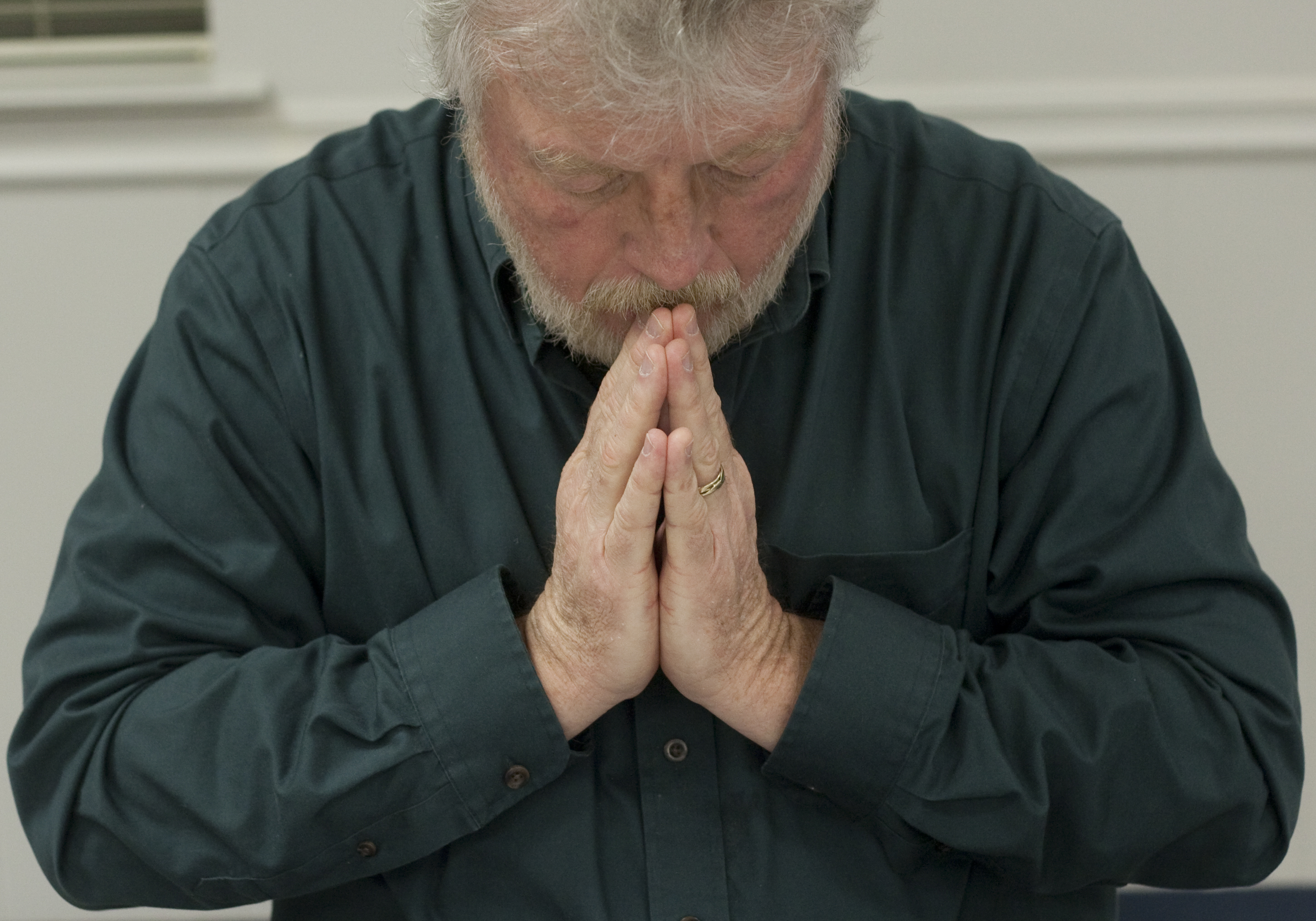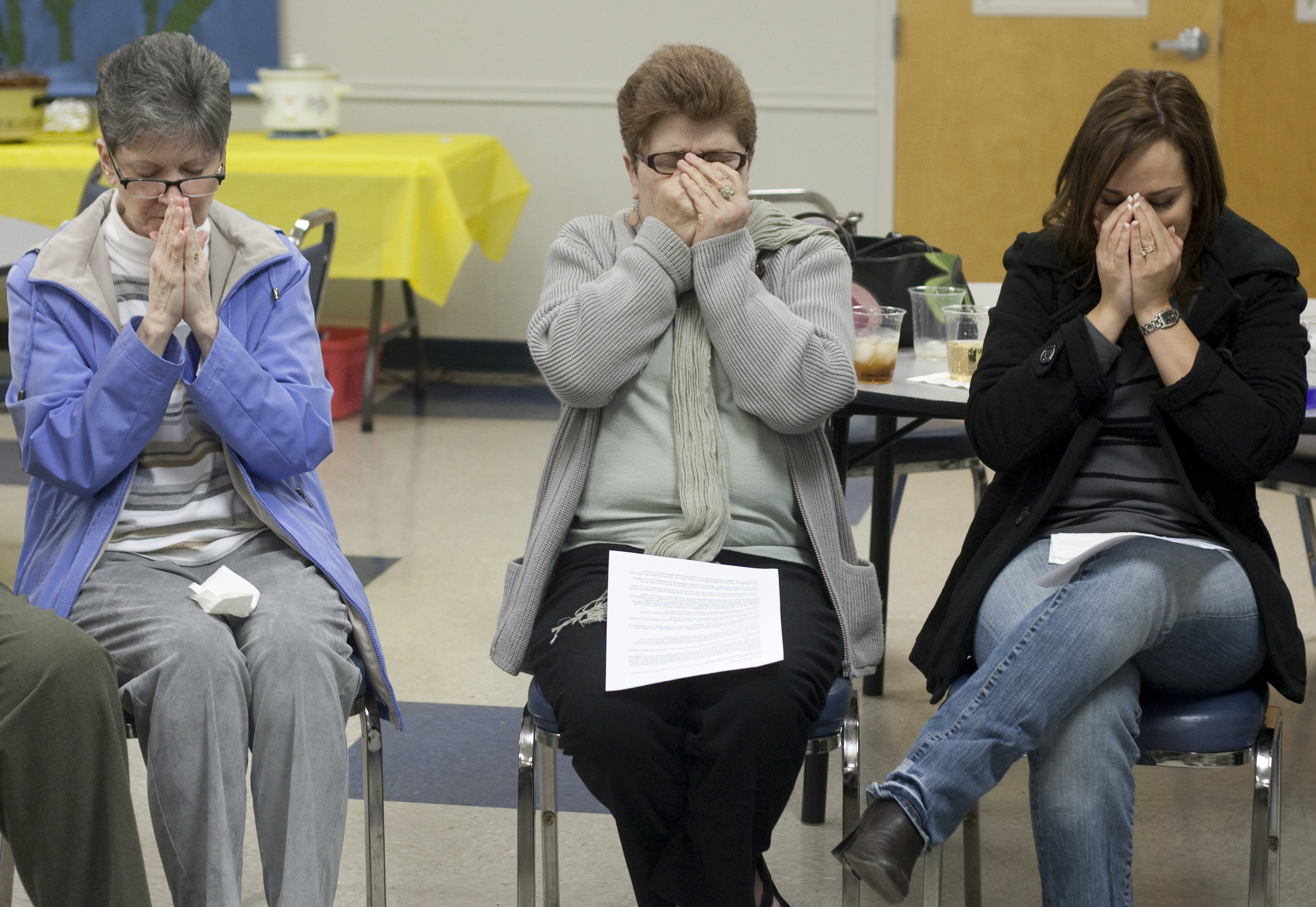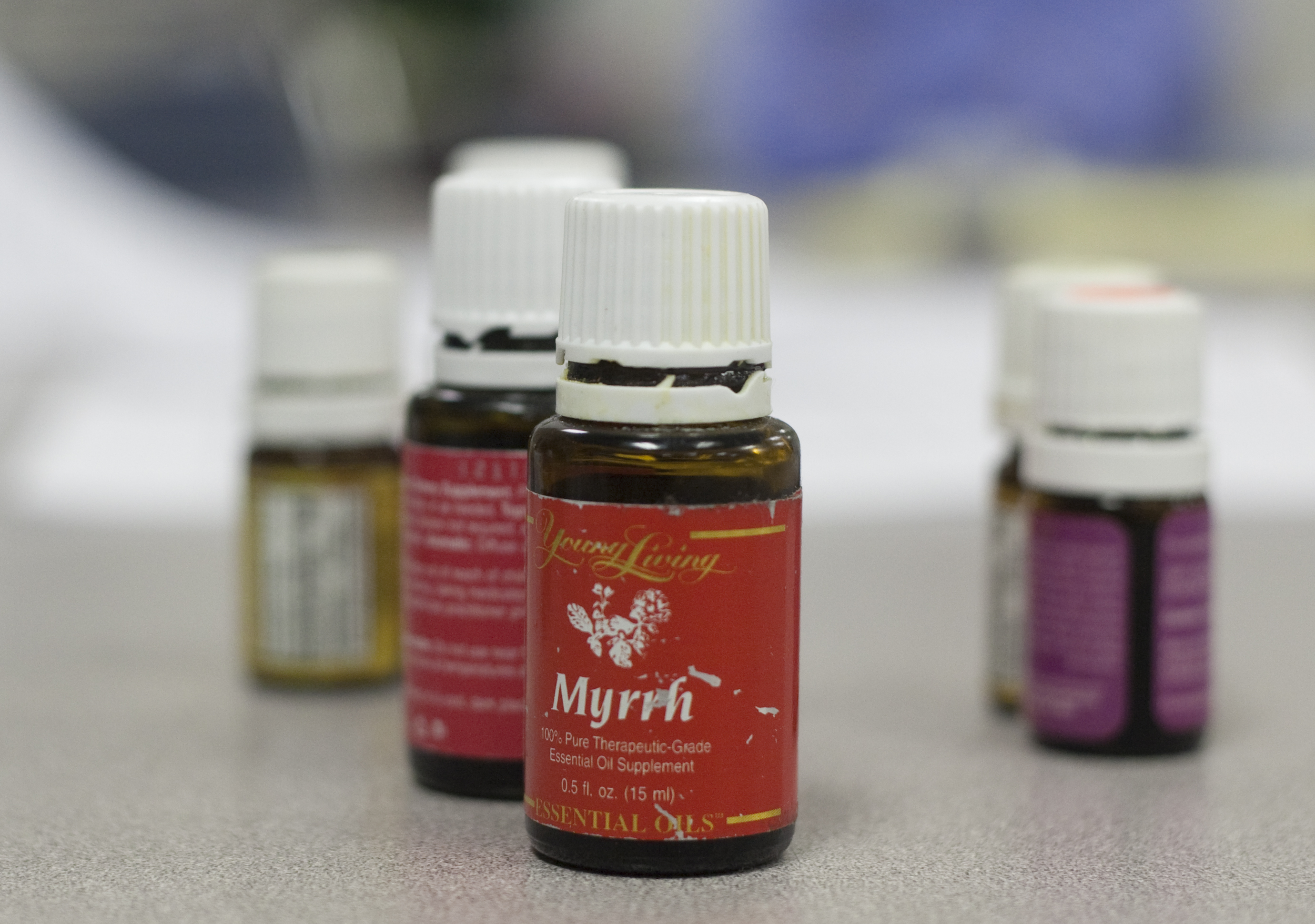IF YOU GO
What: Healing oils workshopWhen: 6:45 p.m. Wednesdays through March 20 (dinner available at 6 p.m.)Where: St. Alban's Episcopal Church, 7514 Hixson PikeAdmission: FreePhone: 423-842-1342
The two dozen people sniffing bottles and smelling each other's hands at St. Alban's Episcopal Church aren't involved in some sort of bizarre religious ritual.
They're inhaling some of the fragrances the Rev. Mark Bigley brought as part of a Lenten healing oils workshop at the Hixson church.
Not only can oils help with physical and mental healing, the congregation's priest-in-charge says, they also work to improve a user's spiritual well-being.
"They remove the physical and emotional blocks that compromise spiritual vitality," says Bigley, a certified clinical aromatherapist. "If you're clinically depressed, not feeling very close to God, if you feel dead inside, oils help to work through the density in the body at a cellular level and release the toxicity, which allows the body to work more freely the way it was created."
During the five weeks of Lent leading up to Easter, he says, the healing oils workshop will cover, among other things, the different kinds of oils, what they're used for, the chemistry of them, how oils are extracted, the role of oils in Scripture and how they can work to relieve stress -- "the big word of the last decade."
When used properly, Bigley says, oils can "clear your mind and body."
"When you're healthy, you're more aware of spiritual experiences," he says. "If your mind is racing, you're
not going to hear God very well. If your mind is quiet, your body is receptive. Oils help prepare that receptivity."
USE COMES AND GOES
The use of oils for healing goes back to around 3500 B.C. in the Middle East, Bigley says.
"It was a normal part of their lifestyle," he says, "but not everybody could use them because they were very precious and expensive."
In the Hebrew Bible, according to Bigley, one of the first recorded uses of oil was during the Moses-led exodus of the Hebrew people from Egypt. That particular oil blend, now known as the holy oil of Moses, includes myrrh, cassia, calamus and cinnamon, he says.
"They fumigated their homes, put it on themselves, inhaled it," Bigley says. "That's the way they kept healthy. During the 10 plagues, the Hebrews didn't get sick."
In the New Testament book of Matthew, a woman came to Jesus with "an alabaster flask of very costly perfume" and poured it on him. The incident was just prior to his arrest, trial and crucifixion, "and he needed to have stress removed," Bigley says. Although the disciples were indignant that the oil was not sold and the money given to the poor, Jesus said "she has done a beautiful thing to me."
Dr. James Marcum, a cardiologist with the Chattanooga Heart Association, director of Heartwise Min- istries and author of the new book "Medicines That Kill," says the Bible has a number of instances in which oils are used for medicinal purposes, but much of the information about that was lost with the destruction of books in the library at Alexandria between 1,300 and 2,000 years ago. But the oils were purported to be excellent at fighting inflammations and infections, he says.
By about the 9th century, Bigley says, oils started to lose their use because of the tilt toward modern medicine. Pope Alexander XIII even forbade priests to practice healing, he says.
"The realm of healing went into science and medicine," Bigley says. "There was a mind and body split. Medicine went ... into pharmacology. Everything was seen as a physical problem and not an emotional and spiritual problem."
HOW THEY WORK
While the use of oil -- primarily olive oil for anointing -- is not unusual in churches today, the use of a variety of oils is not common.
Oils with various properties can be used for different ailments, Bigley says, but "what works really great for one person" may not work well for another.
"Oils are, for the most part, safe," he says. "Only a few have contraindications for us. You have to know what goes with what. You have to know a little chemistry."
Lavender is a universal oil, for instance, Bigley says. It works on skin, mosquito bites, burns, skin irritation and can help create an uplifting mood. However, hyssop should not be used by people with seizures, he says.
Generally, oils can be put on the body, inhaled, carried into the air through a diffuser and, with professional guidance, taken internally, Bigley says.
"Oils are absorbed through the skin or inhaled and enter the bloodstream through the lungs," he says. "The olfactory bulb in the brow area above the nose sends the molecules down the olfactory nerve to the limbic system, or the emotional center of the brain. The vibrational frequency of the oil -- measured in megahertz -- begins to release the tension stored in the limbic system."
In a previous church, Bigley says, an elderly woman told him she was having a difficult time with sinusitis, that she couldn't breathe and couldn't sleep. Two antibiotics prescribed by the doctor were having no effect.
"She was in such poor shape," he says, "your heart goes out to her."
The day after Bigley anointed her with the holy oil of Moses, laid hands on her and prayed over her, she came to him and told him she'd been up all night, coughing and sputtering, he recalls.
"Uh oh," he thought.
But she had come to tell him she now was fine.
Healing oils work differently than pharmacology, according to Bigley. Where pills target a symptom, he says, "oils go into the whole body, and with the wisdom they have, destroy what's harmful not what's healthy."
St. Alban's member Kathy Brown, a registered nurse, has become intrigued with the use of oils -- and the fact they're derived from nature -- since the priest's arrival.
"God is the great healer," she says.
Her husband, Charlie Brown, says he is more of a traditionalist and not quick to "give up what I'm doing." But he likes what Bigley has to say about the biblical history of the oils and how they might be of help spiritually.
BE WARY
Bigley says parishioners should not rush out to buy oils, mix them at random and expect miracles. Oils, he says, can be affected by soil, elevation, rainfall, how and when they're harvested, how they're distilled, what they're distilled in, the temperatures at which they're distilled and what they're bottled in.
They're like fine wine, Bigley says, and because of that, "therapeutic-grade oils are going to cost a little more."
"You have to be careful where you buy [them]," Bigley says. "Companies do shortcutting to make them faster, quicker and more profitable."
As a therapist at Hiwassee Mental Health Center in Cleveland, Tenn., he doesn't mix oils for patients from his own store of 100 oils or oil blends.
"I tell clients that mode is out there, that there are things to research," Bigley says. "I keep that separate."
Marcum says he suspects the oils work, but there is not a lot of scientific proof.
"I believe there's a place for it," he says, "and there are some people around who claim they know how to use it. But most of us who don't know can't recommend it" because there is not a lot of information.
The cardiologist says people who want to use oils should make sure they consult "a practitioner who knows what he's doing" because some salves can turn into gases and get into the bloodstream quickly; some can cause a skin irritation.
"Deep inside," he says, "I think they probably have a benefit. They just have not been defined. But they wouldn't have been around all these years if not they did not have some medicinal use."
St. Alban's member Sherri Bishop says her mother dabbled a bit in oils but nothing to the extent her priest does. Bishop says she is a visual learner, and Bigley has painted a clear picture of how the oils work.
"It's not going to be for everybody," she says, but if it helps in "your prayer life [ability] to hear God, anything we can do" is helpful.



